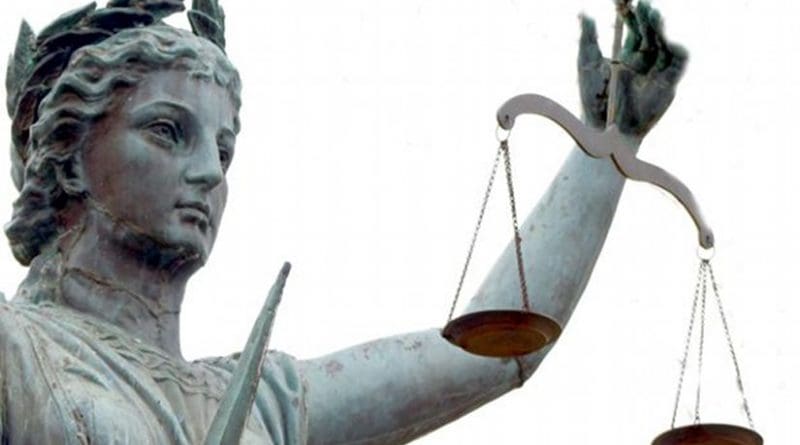Pro-EU Brits Relieved After EU Judges’ Decisions On Welfare, Prisoners’ Votes
By EurActiv
(EurActiv) — European Union judges Tuesday ruled that a ban on prisoners voting in European elections was legal, and suggested that checks on child migrants’ welfare payments were lawful, in decisions that have pro-EU Brits breathing a sigh of relief.
The European Court of Justice in Luxembourg, ruling on a French case, said that EU countries could stop certain nationals from voting. Britain has a blanket ban on prisoners voting.
A separate Advocate General’s opinion – an often influential precursor to a final judgement – said that the United Kingdom should be allowed to check whether claimants of child benefits and tax credits were lawfully resident in the country.
Advocate General Cruz Villalón recommended that EU judges dismiss legal action by the European Commission against Britain. It is now likely they will follow his lead.
The Commission, which refused to comment, had argued that residency checks broke laws guaranteeing EU nationals exercising their right to freedom of movement in the bloc are not penalised by their host country.
The UK is preparing for an in/out referendum of the country’s membership of the EU. The vote, an election promise, must be held before the end of 2017.
PR disaster dodged
The issues of ‘welfare tourism’ and of perceived meddling from Brussels over prisoners’ votes are both potentially damaging for the pro-EU campaign in the UK.
Prime Minister David Cameron, in Manchester this week for the Conservative Party Conference, has said he will campaign for Britain to stay in a reformed bloc. But he faces opposition from Eurosceptic MPs in his own party.
One of his major demands is EU reform to fight ‘welfare tourism’; the perception that EU nationals exploit the bloc’s freedom of movement rules to move to countries with higher social benefits.
Cameron is pushing for a pledge to ban EU migrants from claiming in-work benefits for four years.
A government spokesman said, “The UK welcomes this opinion, which supports our view that we are entitled to ensure only EU migrants who have a right to be in the UK can claim our benefits. However, this is just the Advocate General’s opinion, and we look forward to the European Court of Justice’s judgment in due course.”
“The European Court has confirmed French restrictions on prisoner voting are lawful. The UK’s ban on prisoner voting stays in place and remains a matter for the UK Supreme Court and Parliament to determine,” the spokesman added.
Prisoners
A decade ago, the European Court of Human Rights in Strasbourg ruled a British ban on a convicted murderer from voting was illegal.
Afterwards, in 2010, British MPs roundly rejected moves to end the ban. Cameron has since said the idea of prisoners being able to votes made him feel “physically sick”.
The European Court of Human Rights is an international court, but in Britain is often confused with Brussels. Today’s judgment, which backs the UK line, comes from a separate EU court.
“I must admit I am breathing a sigh of relief,” Peter Wilding, director of pro-EU campaign group British Influence, told EurActiv.
“This is good news. It shows that Europe is going our way, and that doom-mongers who think that reform in the EU is impossible are wrong.”
Wilding admitted that had the judgment and decision been reversed, it would have handed No campaigners valuable ammunition.
Eurosceptic campaign group Business for Britain was also asked for comment, but had not responded by the time of this article’s publication.
UK Independence Party Justice and Home Affairs spokeswoman Diane James MEP said, ” A blanket ban on votes for prisoners is the expressed will of the British parliament. Why are we being subject to this European court at all? If we wish to make our own laws in our own parliament, we must vote to leave the EU.”
Catherine Bearder, a Liberal Democrat MEP, said, “This is an important recognition by the EU of Britain’s unique social security system. “Those Tory Eurosceptics who were hoping to use this as a stick to beat their own Prime Minister will be sorely disappointed.”
It was recently reported that there would be no early referendum, as some had predicted. Events such as the Greek and Refugee crises had forced senior Conservatives to consider pushing it back to the end of 2017.
Today, Home Secretary Theresa May told Conservatives that mass migration threatens UK cohesion and brings “close to zero” economic benefits.

